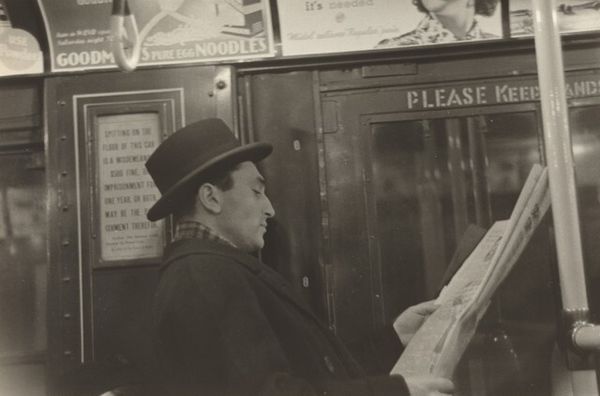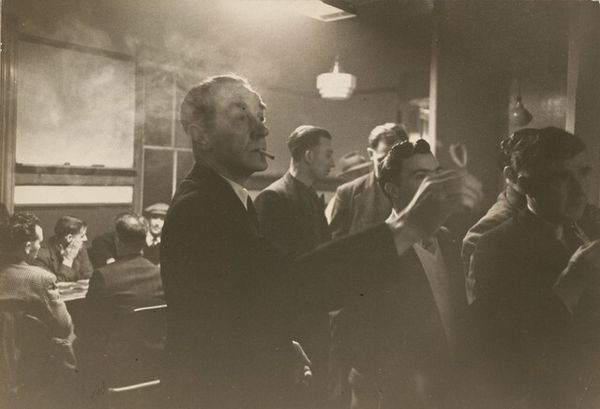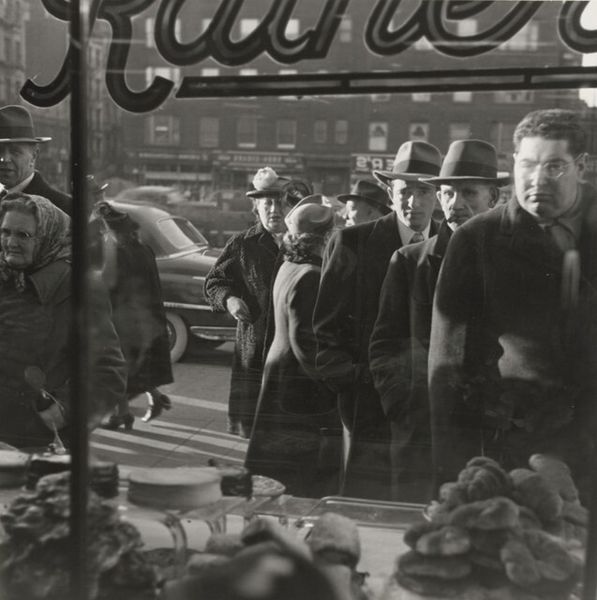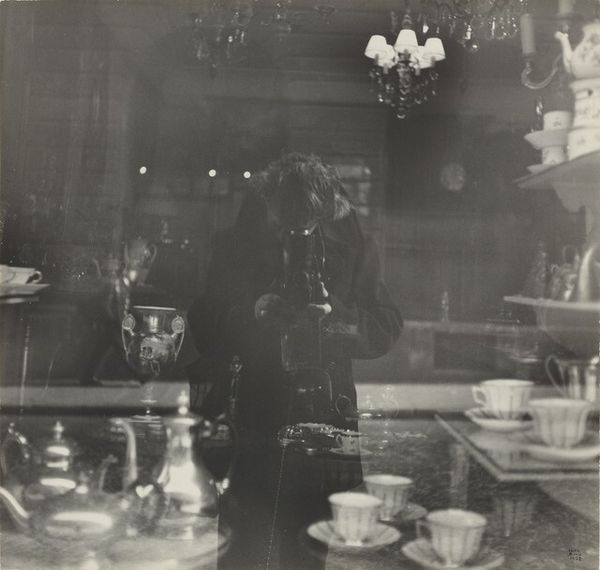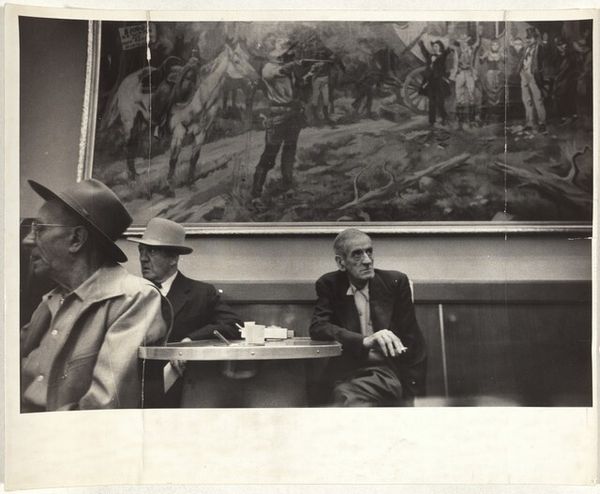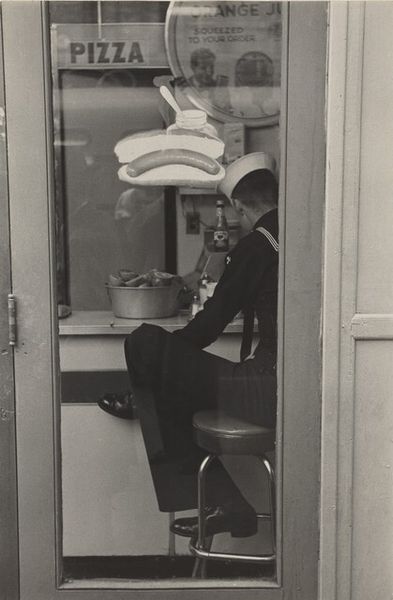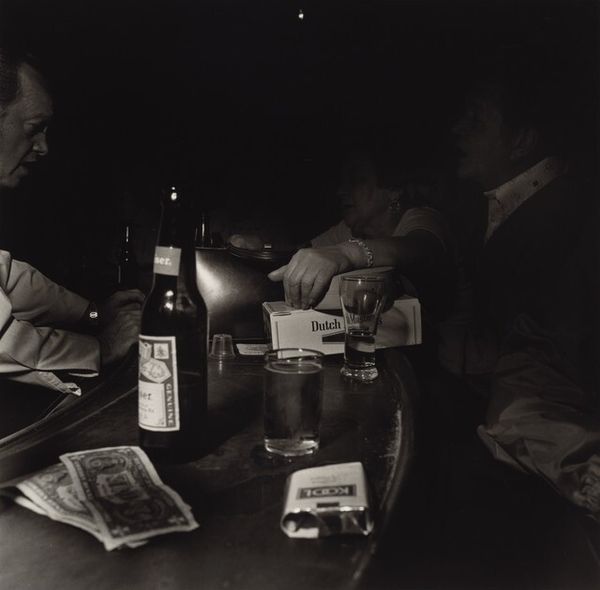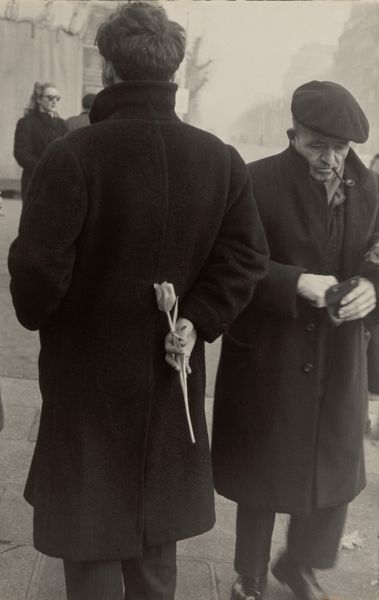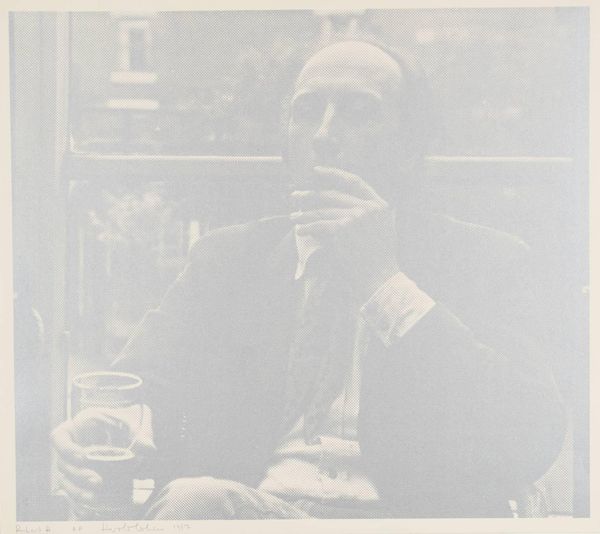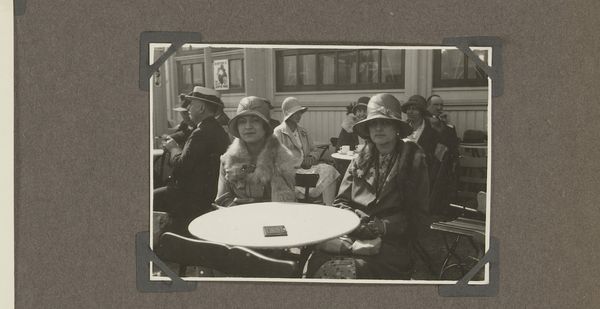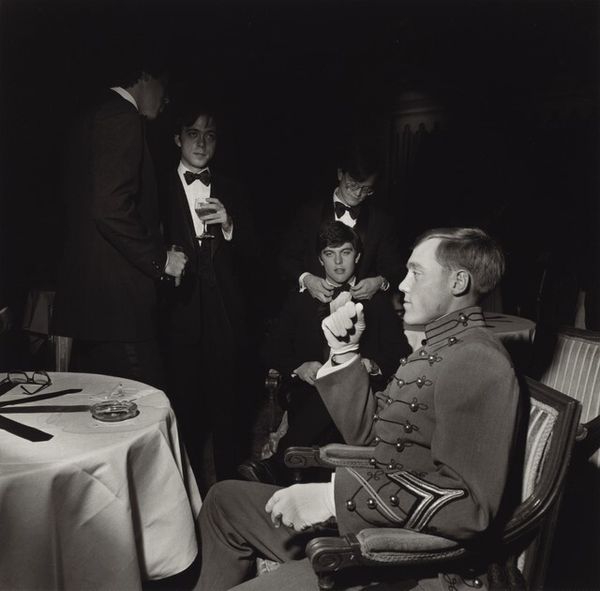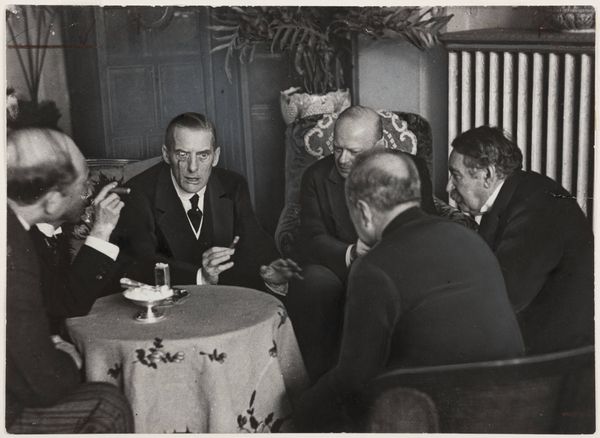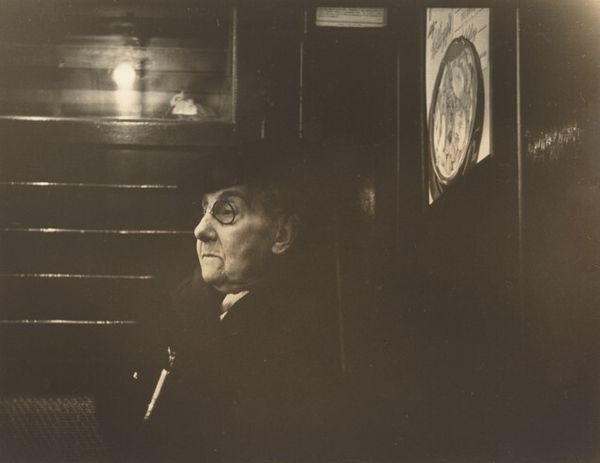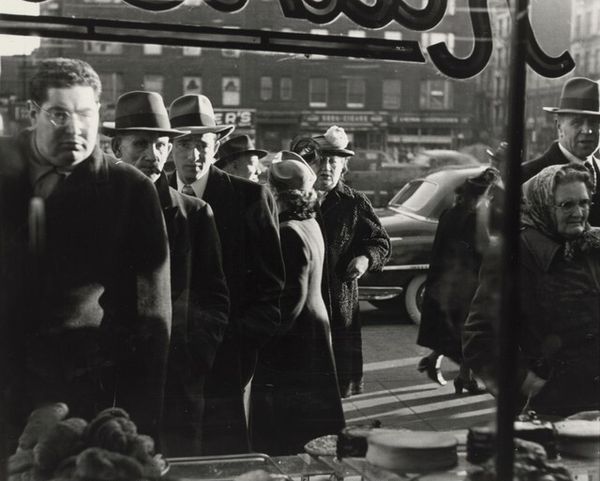
photography, gelatin-silver-print
#
portrait
#
black and white photography
#
outdoor photograph
#
archive photography
#
street-photography
#
photography
#
historical photography
#
gelatin-silver-print
#
monochrome photography
#
ashcan-school
#
cityscape
#
realism
#
monochrome
Dimensions: sheet: 10.6 x 16.4 cm (4 3/16 x 6 7/16 in.)
Copyright: National Gallery of Art: CC0 1.0
Editor: Walker Evans' "New York Milk Counter," taken around 1929 or 1930, is a captivating gelatin silver print. It gives us a glimpse into a bygone era, with people casually enjoying milk and snacks. The monochrome tones create a sense of nostalgia. What kind of hidden stories do you see lurking here? Curator: I see a potent blend of social commentary and everyday symbolism. Milk, for instance, carries connotations of nourishment and purity. Its prominent placement, almost monumental, might suggest a collective longing for simpler times during the looming economic uncertainties. The men, each with distinct attire, reflect varied social strata within the urban landscape. Do you notice how the window acts as a literal and metaphorical barrier, framing the scene like a stage play? Editor: That's an intriguing point about the window, the 'stage play'. The glass reflections definitely add another layer of complexity to the subjects' social interactions. Curator: Indeed. These reflections symbolize the blurred lines between the individual and the masses, private life and public performance. The hats worn by some could symbolize conformity to certain roles, professions, or social classes. This photograph encourages us to ask: how do visual signifiers solidify identity in a rapidly changing world? Editor: I never would have thought of the hats in that symbolic context, or the milk as some social elixir, almost! That’s insightful. I assumed they were just, well, men having a snack. Curator: That initial reaction is perfectly valid. Art should initiate an open, multifaceted dialogue! Considering context allows one to interpret the signs, symbols and cultural milieu more deeply. Editor: I'm definitely leaving with a richer understanding and a newfound appreciation for decoding visual symbolism. Curator: And I am reminded that engaging with art means considering the evolution of symbols in public memory and challenging our preconceptions about the seemingly mundane!
Comments
No comments
Be the first to comment and join the conversation on the ultimate creative platform.
